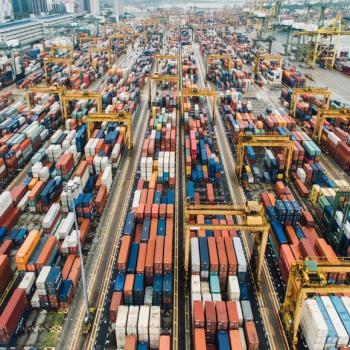Why Christians should care that the Nobel prize in economics has gone to poverty and welfare researcher Angus Deaton
By Dr. P.J. Hill
The announcement of Angus Deaton as the latest recipient of the Nobel Prize in Economics is welcome news for Christians who want a deeper understanding of the dramatic change in human well being for most of the world over the last two centuries. Deaton, a Princeton economist who focuses very carefully on a wide variety of data, explains how the beginnings of economic growth in England and the Netherlands around 1800 has spread to much of the world, with substantial impact on infant mortality, people’s perception of “life satisfaction” (it increases with increases in per capita income) and other measures of human well being.
Deaton presents a nuanced understanding of measures of income, poverty, and health. He argues that economic growth is not a recent phenomenon; many societies throughout history have experienced growth, but until the last two centuries none were able to sustain that growth. The introduction of the rule of law coupled with consequent technological improvements are responsible for a substantial portion of the today’s world experiencing life in ways that were inconceivable in 1800.
Deaton argues that economic growth will not affect everyone at the same time in the same way, hence increases in income inequality may be a natural outcome in a growing economy. Those are not problematic unless the increased inequality changes power structures enough that crony capitalism, where the wealthy are able to alter the rules in their favor, dominates the political world. He acknowledges that we don’t have a good measure of how much of the increases in inequality are due to such favor seeking, but sees it as a potential problem as some become enormously wealthy. This is quite different than the standard zero sum view of world, where an increase of wealth of some has to come from others in society. In other words, it is not necessarily the case that the rich become rich at the expense of the poor. The overall impact of wealth producing activities depends on the rules of the game, in particular whether the rule of law is maintained.
The moral case for the rich of the world to be concerned for the poor is an important part of Deaton’s work, but he posits that much of that moral concern is expressed in unfortunate, and indeed unethical ways. He sees the efforts to control population growth as largely driven by a belief on the part of the developed world that the “others” of Africa and Asia needed to be told that they were having too many children, without asking those people about their preferences for family size.
The problem of good intentions gone awry also is evident in Deaton’s criticism of foreign aid. He sees most foreign aid as increasing the power of extractive institutions, rather than wealth producing ones. Expanding trade between countries offers much more hope for the poor of the world than monetary transfers to governments that have little interest in bettering the economic status of their population.
This Nobel Prize is an acknowledgement of the importance of thinking carefully about the world of wealth creation and the impacts of that creation on all the people of the world.
Dr. P.J. Hill is Professor Emeritus of Economics, Wheaton College and Senior Fellow, Property and Environment Research Center, Bozeman, Montana.














